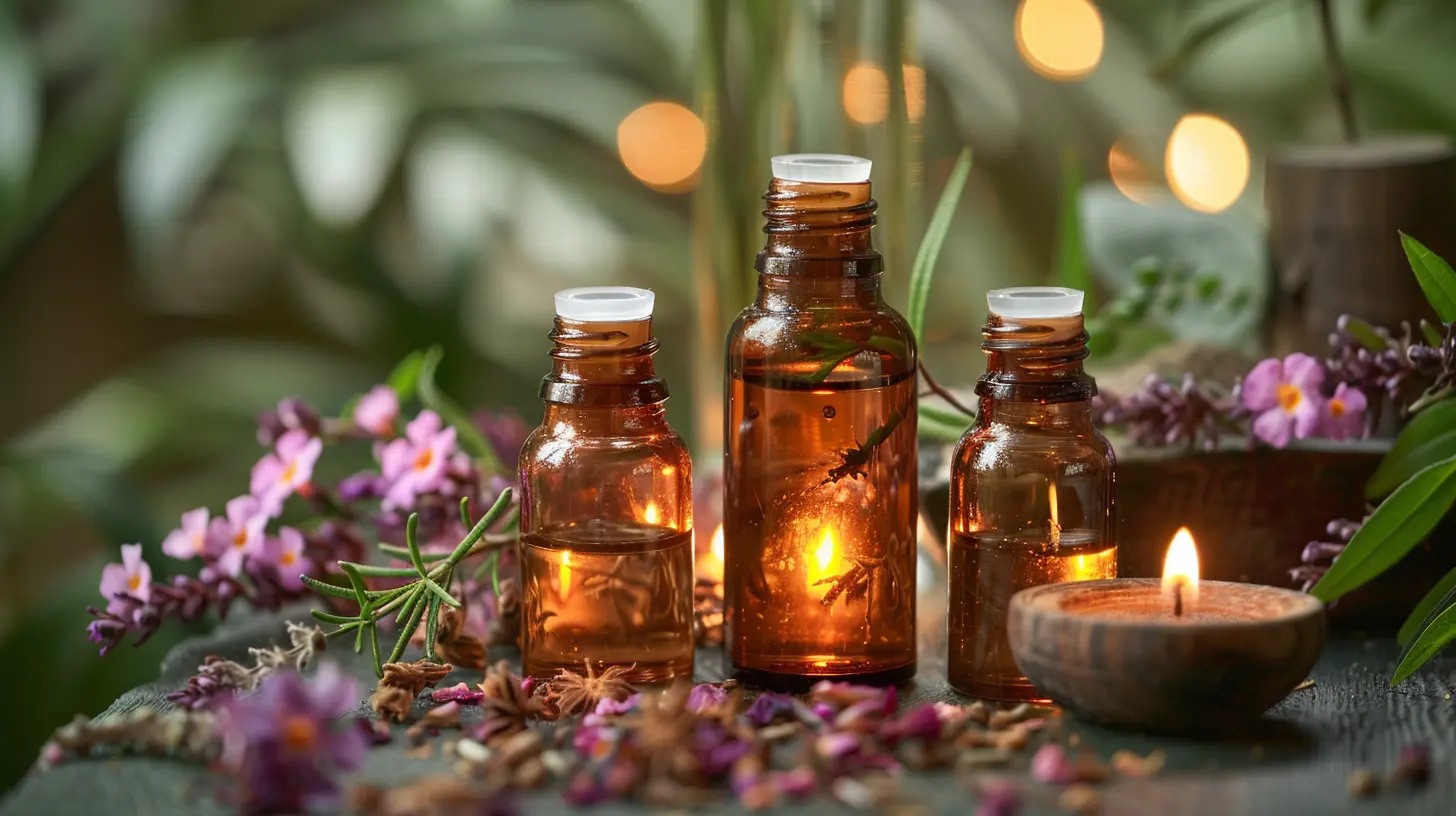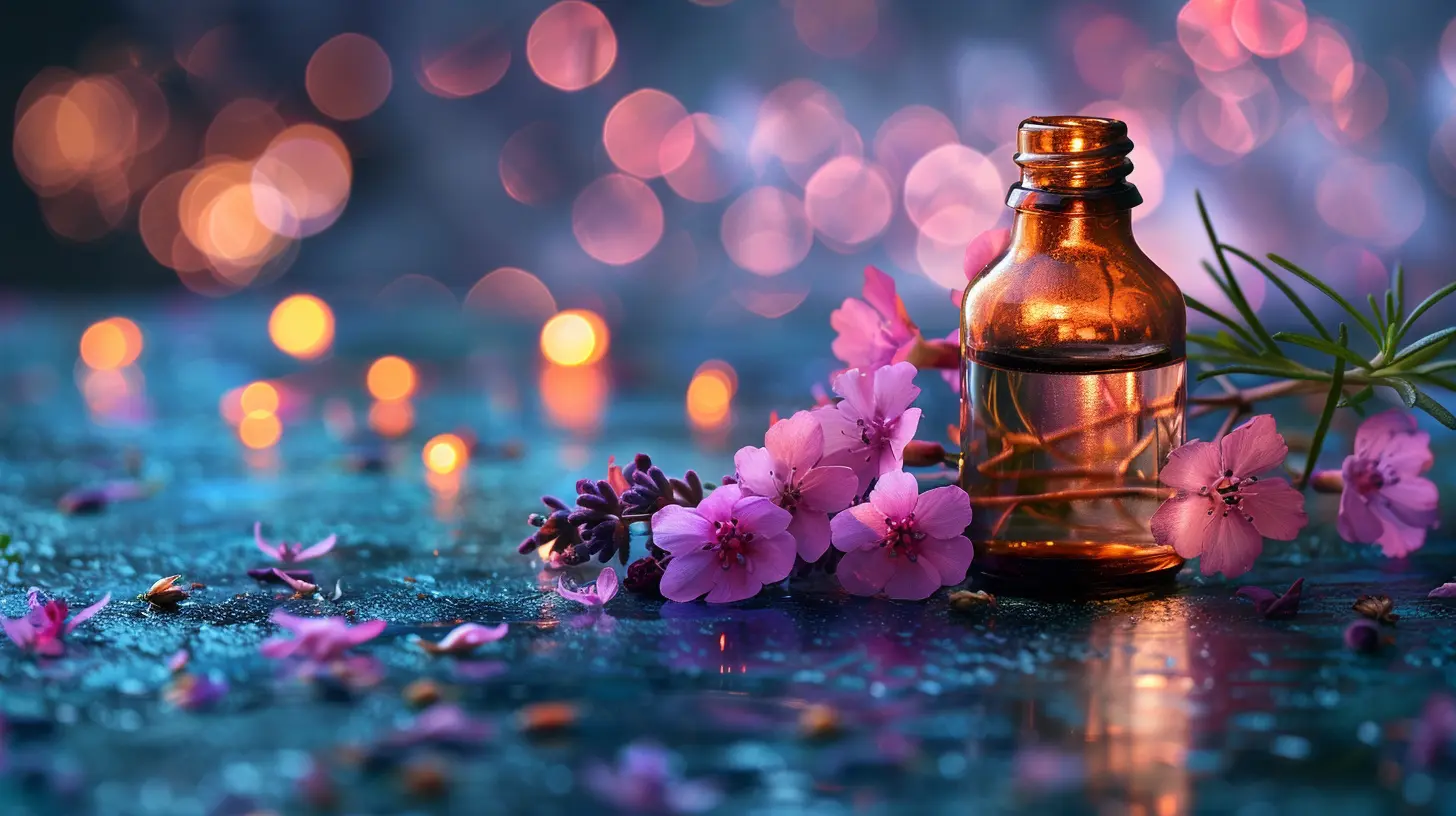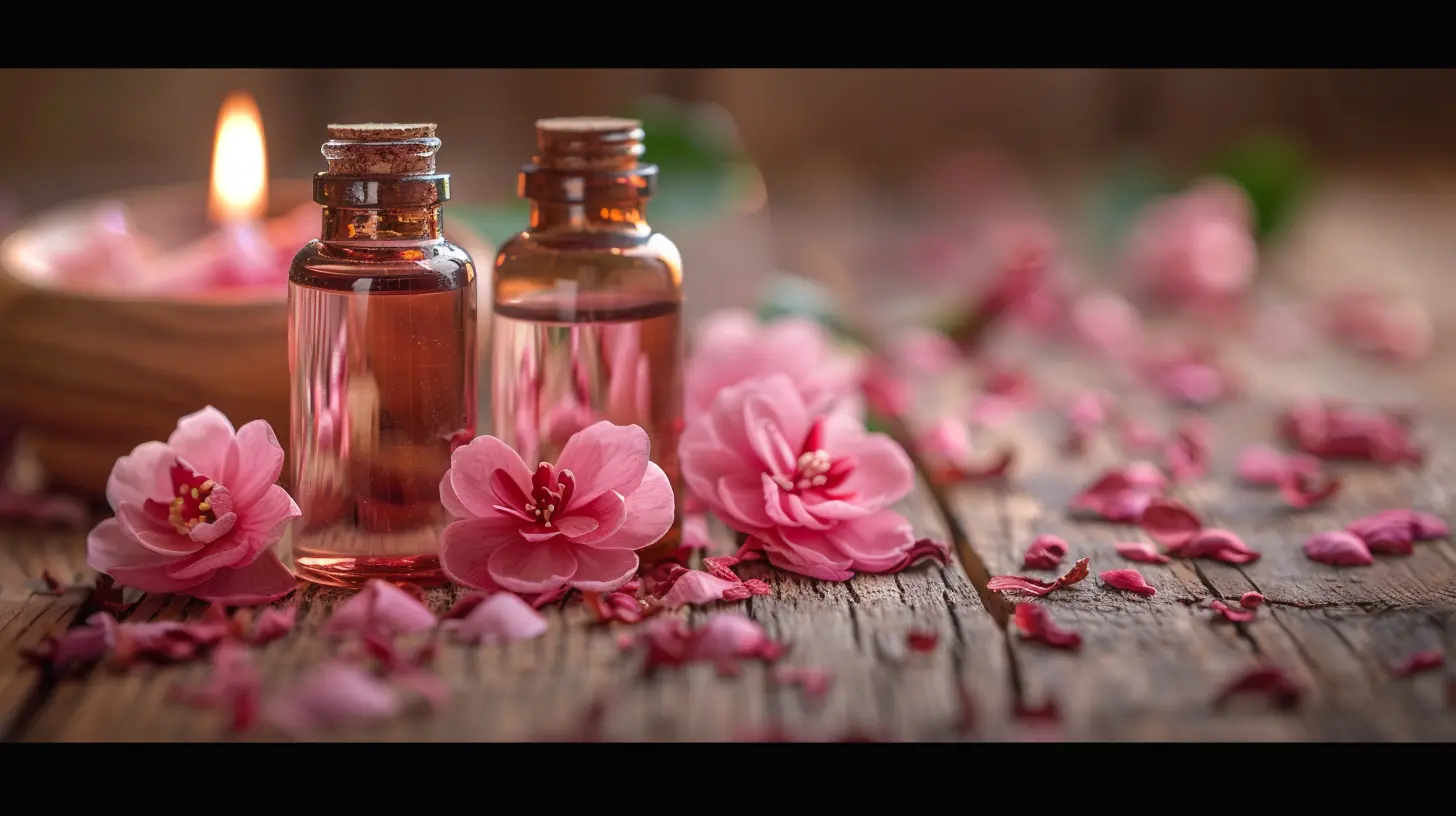The Power of Aromatherapy: Healing the Mind, Body, and Spirit
19 June 2025
Aromatherapy isn’t just about pleasant scents—it’s a powerful, holistic healing tool that has been used for centuries. Whether you’re feeling stressed, struggling to sleep, or looking for a natural way to boost your energy levels, essential oils could be the solution you’ve been searching for.
But how does it really work? And how can you tap into its benefits to improve your overall well-being? Let's dive deep into the world of aromatherapy and uncover its impact on the mind, body, and spirit. 
What Is Aromatherapy?
Aromatherapy is a form of alternative medicine that uses natural plant extracts—commonly known as essential oils—to enhance physical and emotional well-being. These oils are derived from flowers, leaves, bark, roots, and even fruits, capturing the essence of the plant in a highly concentrated form.When inhaled or applied to the skin, these oils interact with the body in ways that promote relaxation, healing, and balance. It’s like nature’s own version of a reset button for your mind and body! 
How Aromatherapy Works
Ever noticed how a particular smell can trigger a flood of memories or instantly change your mood? That’s because your sense of smell is directly linked to the brain’s limbic system—where emotions and memories are processed.When essential oils are inhaled, their molecules travel through the nose to this part of the brain, influencing your mood, stress levels, and even bodily functions. When applied to the skin (often diluted with a carrier oil), they can be absorbed into the bloodstream and provide various physical health benefits.
In short, aromatherapy works on both a psychological and physiological level, making it a truly holistic practice. 
The Benefits of Aromatherapy
Aromatherapy isn’t just about making your space smell nice—it offers a wide range of benefits that can positively affect your mind, body, and spirit. Let’s break it down.1. Mental and Emotional Benefits
Reduces Stress and Anxiety
Life is stressful, and we all need a way to unwind. Essential oils like lavender, chamomile, and bergamot are widely known for their calming effects. A few drops in a diffuser or applied topically can help lower cortisol levels, making it easier to relax after a long day.Boosts Mood and Energy Levels
Need a little pick-me-up? Citrus oils like lemon, orange, and grapefruit have uplifting properties that can help fight fatigue and boost your mood. Peppermint and rosemary are also great choices for increasing focus and mental clarity.Improves Sleep Quality
Tossing and turning at night? Lavender, cedarwood, and ylang-ylang are known for their ability to promote restful sleep. Diffusing these oils before bedtime or adding them to a warm bath can work wonders for insomnia.2. Physical Health Benefits
Relieves Pain and Inflammation
Essential oils such as eucalyptus, ginger, and peppermint have anti-inflammatory properties that can help with muscle soreness, arthritis, and headaches. A simple massage with a diluted oil can provide significant relief.Supports the Immune System
Some essential oils have antibacterial and antiviral properties that help the body fight infections. Tea tree oil, eucalyptus, and oregano oil are known for boosting immunity and protecting against colds and flu.Aids Digestion
Feeling bloated or dealing with indigestion? Oils like ginger, fennel, and peppermint can support digestion and ease stomach discomfort.3. Spiritual Benefits
Enhances Meditation and Mindfulness
Aromatherapy is often used in spiritual practices to deepen meditation and enhance mindfulness. Frankincense, sandalwood, and myrrh are popular choices for creating a peaceful, sacred space.Balances Energy and Chakras
In holistic healing, certain essential oils are believed to align and balance the body’s energy centers (chakras). For example, rose oil is associated with the heart chakra, promoting love and compassion, while clary sage is known to stimulate creativity and intuition.Promotes Emotional Release and Healing
Scents have a powerful effect on emotions. Some essential oils can help release deep-seated emotions and traumas, promoting emotional healing. Jasmine, rose, and helichrysum are known for their emotionally uplifting properties.
How to Use Essential Oils for Aromatherapy
There are several ways to enjoy the benefits of aromatherapy. Here are some of the most effective methods:1. Diffusion
Using an essential oil diffuser is the most common way to enjoy aromatherapy. Just add a few drops of your favorite oil to water, and it will disperse the scent throughout your space, creating a calming or energizing atmosphere.2. Inhalation
For a quick mood boost, place a few drops of essential oil on a tissue or inhale directly from the bottle. This is especially helpful when you need instant relaxation or an energy lift while on the go.3. Topical Application
Essential oils can be applied to the skin, but always dilute them with a carrier oil (such as coconut, almond, or jojoba oil) before use. Common application areas include:- Wrists and pulse points for emotional support
- Temples for headache relief
- Chest for respiratory benefits
- Abdomen for digestive support
4. Aromatherapy Baths
Adding essential oils to a warm bath is a fantastic way to unwind and relieve stress. Mix a few drops with Epsom salts or carrier oil before adding them to the water to prevent skin irritation.5. Massage Therapy
Aromatherapy massages combine the power of touch with the healing properties of essential oils. This method helps reduce tension, improve circulation, and promote relaxation.Choosing the Right Essential Oils
With so many essential oils available, choosing the right ones can feel overwhelming. Here are some popular choices and their benefits:- Lavender – Calming, promotes sleep, relieves anxiety
- Peppermint – Energizing, helps with headaches, aids digestion
- Eucalyptus – Clears sinuses, supports the immune system
- Tea Tree – Antibacterial, great for skin health
- Lemon – Boosts mood, detoxifies the body
- Frankincense – Enhances meditation, reduces inflammation
- Rose – Promotes emotional healing, balances hormones
Always opt for high-quality, 100% pure essential oils to get the best therapeutic benefits.
Potential Risks and Precautions
While aromatherapy is generally safe, there are a few things to keep in mind:- Always dilute oils before applying them to the skin to avoid irritation.
- Do a patch test to check for allergic reactions.
- Avoid ingestion unless under professional guidance.
- Be cautious with pets—some essential oils can be toxic to animals.
- Consult a doctor if you have underlying health conditions or are pregnant.
Final Thoughts
Aromatherapy is a simple yet powerful way to enhance well-being on multiple levels. Whether you're looking to relieve stress, improve sleep, or connect with your spiritual side, essential oils offer a natural and effective solution.So why not give it a try? Light up a diffuser, take a deep breath, and let nature's aromatic magic work its wonders on your mind, body, and spirit.
all images in this post were generated using AI tools
Category:
Holistic HealingAuthor:

Eileen Wood
Discussion
rate this article
2 comments
Lulu Brown
Aromatherapy offers a holistic approach to wellness, utilizing essential oils to enhance mental clarity, alleviate physical discomfort, and promote emotional balance. Its benefits are increasingly supported by scientific research and anecdotal evidence.
November 18, 2025 at 4:49 AM

Eileen Wood
Thank you for your insightful comment! I agree that aromatherapy’s holistic benefits are gaining recognition, highlighting its potential to support overall wellness.
Vanya Bryant
Aromatherapy: where scents become remedies. It’s fascinating how a whiff of lavender can calm the mind, while eucalyptus invigorates the spirit. Embrace these fragrant allies for holistic healing—nature’s most soothing prescription!
June 30, 2025 at 3:18 PM

Eileen Wood
Thank you for your lovely insight! It's incredible how essential oils can transform our well-being. Embracing nature's aromas truly enhances holistic healing.


